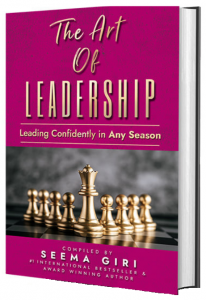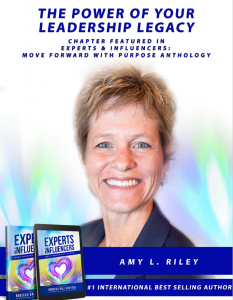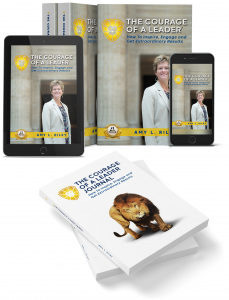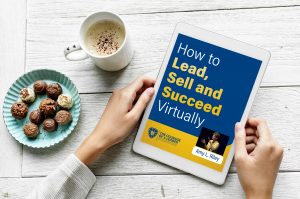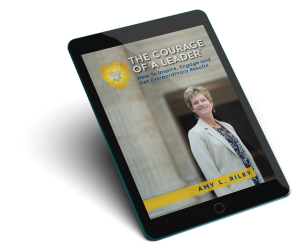Powerful Collaboration for Extraordinary Results week continues!
We know that we can have virtual meetings and work remotely. Yet, are we doing so effectively? What’s most important to consider when we’re leading a virtual or hybrid team?
David Coleman, an award-winning speaker, joins us on The Courage of a Leader podcast and outlines practical strategies to create respectfully engaging and valuable-to-all virtual interactions.
This is not an episode to miss!
About the Guest:
David Coleman of High-Impact Training is an award-winning speaker who provides wildly entertaining and engaging presentations on a wide variety of topics, including dating and relationships, leadership, public speaking, multi-tasking, and more. No matter the topic, the location, or the size of the group, count on David to deliver and infuse unmatched energy.
Nationally recognized and celebrating more than 25 years of masterful speaking experience, David can relate to and capture any audience. David is known for his ability to create unique learning experiences. Every program he delivers combines engaging content with group energy designed to accelerate participants toward success.
The best way to reach David is by email at TheDatingDoctor@mac.com or by calling him at 513-403-7399.
About the Host:
Amy L. Riley is an internationally renowned speaker, author and consultant. She has over 2 decades of experience developing leaders at all levels. Her clients include Cisco Systems, Deloitte and Barclays.
As a trusted leadership coach and consultant, Amy has worked with hundreds of leaders one-on-one, and thousands more as part of a group, to fully step into their leadership, create amazing teams and achieve extraordinary results.
Amy’s most popular keynote speeches are:
- The Courage of a Leader: The Power of a Leadership Legacy
- The Courage of a Leader: Create a Competitive Advantage with Sustainable, Results-Producing Cross-System Collaboration
- The Courage of a Leader: Accelerate Trust with Your Team, Customers and Community
- The Courage of a Leader: How to Build a Happy and Successful Hybrid Team
Her new book is a #1 international best-seller and is entitled, The Courage of a Leader: How to Inspire, Engage and Get Extraordinary Results.
https://www.linkedin.com/in/amyshoopriley/
Link mentioned in the podcast
The Inspire Your Team assessment (the courage assessment): https://courageofaleader.com/inspireyourteam/
Thanks for listening!
Thanks so much for listening to The Courage of a Leader podcast! If you got inspired and/or got valuable leadership techniques you can use from this episode and think that others could benefit from listening, please share using the social media buttons on this page.
Do you have questions or feedback about this episode? Leave a comment in the section below!
Subscribe to the podcast
If you would like to get automatic updates of new The Courage of a Leader podcast episodes, you can subscribe to the podcast on Apple Podcasts. You can also subscribe in your favorite podcast app.
Leave us an Apple Podcasts review
Ratings and reviews from our listeners are extremely valuable to us and greatly appreciated. They help our podcast rank higher on Apple Podcasts, which helps us ignite The Courage of a Leader in more leaders! Please take a minute and leave an honest review on Apple Podcasts.
Teaser for next episode
We’ve got another episode dropping during Powerful Collaboration for Extraordinary Results week! Stay tuned for our next guest podcast episode – The 5 Principles for Bridging the Connection Divide – with Valerie Mrak, a conflict transformation specialist, who takes exhausted, frustrated relationships and helps her clients transform them into productive partnerships.
Transcript
We know that we can have virtual meetings and work remotely yet, are we doing so effectively? What's most important to consider when we're leading a virtual or hybrid team? Those are the questions we tackle in this episode. David Coleman, an award winning speaker joins me on this episode today. And he outlines practical strategies to create respectfully engaging and valuable to all virtual interactions. I know you'll enjoy what David had to share.
Amy Riley:Welcome to the Courage of a Leader podcast. This is where you hear real life stories of top leaders achieving extraordinary results. And you get practical advice and techniques, you can immediately apply for your own success. This is where you will get inspired. And take bold, courageous action. I am so glad you can join us. I'm your host, Amy Riley. Now, are you ready to step into the full power of your leadership and achieve the results you care about most? Let's ignite the Courage of a Leader.
Amy Riley:David, thank you for being with me today on the courage of a leader podcast.
David Coleman:Amy, I'm really honored, kind of humbled. I've heard I have great respect for the person that connected us Sherry, when as a fellow speaker and Olympian, Olympic athlete and national championship winning basketball coach, and she relentlessly over a while said have you talked to my friend Amy yet? Have you been on her podcast? For her to have that much confidence and belief in someone tells me all that I need to know about you. We
Amy Riley:see her persistence and why she has achieved all that she has? Yes. And she was exactly right. We needed to be in each other's fears. And I'm super excited about what we're going to discuss today, David, we are going to talk about how to lead a hybrid or remote team from afar. And we all know since our global pandemic, remote teams, remote workers, hybrid situations are much more prevalent. Now, some companies and industries have been doing this for quite some time, right? Or other leaders, right? We're still in the initial years of figuring this out. So leaders out there, I would say whether you're new, or to a remote hybrid situation, or you've been doing this for quite some time, this is a conversation for you. You might also find yourself in the situation where other teams or colleagues that you're working with are not physically in the same place that you are. Right. So I know, David that you have five steps I do to effectively leading in a hybrid or remote situation. Let's dive right in.
David Coleman:I do. And let me say this, you're taping from where Chicago Cago. I'm in Cincinnati, depending on traffic, it's five hours to three hours, once you get to Chicago, depending on where you live. We wouldn't even possibly be doing this today. If we didn't have this type of kind of new world for all of us. And I want to be clear. I'm a professional speaker and entertainer. Being in front of live people is one thing, it's utopia. But if people aren't even offering this as part of what they do, I think they're missing the boat. And we can talk about that. But number one, if you remember back when COVID really hit and we all went What is zoom? What is Microsoft Teams? What is we can we can list all those, Amy? People were like, Are you kidding me? I've got it. So my number one thing I want to say is I think people should embrace the uniqueness that geographic distance offers. For instance, you're in Chicago, there's a tremendous maturity, there's a lot of people running around that town, probably twice Cincinnati is a major city until you compare it to something like Chicago. So instead of being bummed out that we're not together, or let's say that, let's say that we had we had Sherry And Sherry's out at her place in Montana, and my friend Lenny, who lives in Miami was on this call, and my friend Derek who lives on the all instead of going sorry, we can't all be together. Let's embrace the energy, the attitudes and the experience and expertise that we each bring. Because we're coming at us from a different perspective. And a different day. I haven't lived your day in Chicago today. You haven't lived my morning in Cincinnati. We haven't lived someone else's later morning right now out in California. I think we should embrace that. And I believe that it adds to our meetings and our events. Yeah,
Amy Riley:I love that. And I'm hearing not relating to it as less than David. Like, here's this opportunity. This is a way that Oh, my, you know, we just found a link and clicked and here we are connected, where it could have taken us seven, nine hours to get situated in the same space.
David Coleman:Correct and or we couldn't have, or we simply couldn't have. So yeah, I believe that we have to embrace the energy, the ideas, the experiences that come from people who are on something digital with us, from what they've lived, where they are, and the energy they're bringing based on the environment. They are on that call from. Yeah,
Amy Riley:and this is also tying back I believe, David, to something you already said, embracing this means? Can we provide virtual options inside of what we do? Can it be part of how your teams connect how your teams collaborate with colleagues or partners? Or can it be part of your sales process or how your customers work with you?
David Coleman:I believe that if someone I don't care what they do for a living, I don't care if they are a stylist and a hairdresser. I don't care if they are a construction manufacturer, I don't care if they work in the clothing. And I don't care what people do. If they are not offering some form of something like what we are doing today as an ancillary to what they already do. I believe they're missing the boat. I'll give you an example. If someone books me, I'm I'm an international keynote speaker trainer. I'm a podcaster. I've been very, very blessed to speak all over the world. If someone books me, let's say, say a company in California says we want you to come in and do a training day for us, I will automatically add a free zoom. And I'm following that event that they want. It could be a week later a month later. And honestly, if that company was awfully good to me, and I felt like we had great chemistry, I'll probably give them one three months out and six months out. After want to get back together with me. And I don't charge them for that. It was a privilege for me to go do that event. And if it went well enough that we want to get back together, I can do that. And I believe that people who aren't doing that, look how you're changing the world. Okay, I can already tell within three minutes of being on air with you that your podcast is amazing. So imagine if we weren't doing this today, who would lose out, it
Amy Riley:keeps the connection going. And David, when you said hairstylist, right? Many listeners might be thinking, why do you have to do that in person, I gotta tell you, if I could meet with a stylist for 15 minutes virtually, and have them be able to talk to me about how they handle short, curly hair, and options and what they see and be able to have some of that conversation ahead of time. I'm going to feel so great about going to that appointment, and I'm not going to let anything else get in the way. One more comment on this David, in talent development, right, our field, we've been talking about blended learning for a long, long time, and we've been trying to make it happen. But it always seemed like virtual was less than virtual was the optional. The real learning happened in the in person, parts of the program. And now people have experienced full leadership development programs virtually. And now they get it's this is all part of the program, all part of the process. And we're actually experiencing true blended learning. I agree. I'm excited about
David Coleman:I think people I couldn't agree more with what you just said. However, I still think it could be less than if people don't take it seriously. And that was why are they don't prepare. Obviously you prepare for today. Obviously I did. I sent you some things we've talked before. But not everyone does that. And that is where these five steps came from. People not preparing, treating, treating these virtual meetings or get togethers or events, like a joke. And that is why you see people put up a still shot, and they mute their mic and go play golf. And it looks like they're at the meeting. But they're not. Because they can see that the other people didn't take it seriously. Why should they?
Amy Riley:Yeah. So embrace the uniqueness geographical distance offers,
David Coleman:right? Number two, and I teach this I do a couple of different things. But I talked about relationships for living. I talked about leadership and I talked about team building for a living. I do about 200 Live talks a year and then I do coaching on the side and one no matter which of those genres I'm talking about. I believe in what's called Thoreau brevity, I believe we have to adopt a thorough brevity communication style when we are on something like this. I want you to remember back to the pandemic, when we first started getting on these zooms, and people had no idea what to do And you'd have somebody going on and on and on and somebody went to get a drink and came back and that person, I believe that we have to allow people to, let's say that we were had a bunch of people, I would say, Amy, during our podcast, someone can give us a tangent timeout. That means they think that this has run its course, give us 30 seconds to bring what we're talking to, to a close, so that you can go on, which I will do right now.
Amy Riley:So literally, someone puts up the T signal or what you would say, you
David Coleman:would say, Hey, okay, there's eight of you on the panel. Today, there's about 20 of you who've come in to watch if you think that we've run if if Safa topics run its course. And we're not being mean, we're just say, hey, tanjit Timeout, got this topic, and you give that person up to 30 seconds to bring it up, you're not cutting them off in mid sentence. Somebody can't say something in 30 seconds, it probably doesn't need to be said, I
Amy Riley:love this, like let's figure out some of the ways of operating some process prompts that we could use, right? If everybody has a video on they can put they can put the T signal into the video or give me a green check. If you've got it and you feel like okay, we can move on this topic.
David Coleman:People go on and on on on not too convinced the people who are watching they have to convince themselves that they they actually said it correctly, once brevity saying as much as you can, using as few words as possible.
Amy Riley:Yeah. Thorough brevity. Sounds like an oxymoron, but it sounds aspirational. All right, David, before we go into number three, let me tell listeners more about you. David Coleman is an award winning speaker who provides wildly entertaining and engaging presentations. You've heard it already on a wide variety of topics, including dating and relationships, leadership, public speaking, team building and more. No matter the topic, the location, or the size of the group or the format, count on David to deliver and infuse on matched energy nationally recognized and celebrating more than 25 years of masterful speaking experience. David can relate to and capture any audience. David is known for his ability to create unique learning experiences, every program he delivers combines engaging content with group energy designed to accelerate participants towards success. Thank you for sharing your experience and your expertise with us today. David,
David Coleman:thank you so much. It's again, it's an honor to be here. Amy, it's you. You run a great show here. And it's nice to be a part of it. Yeah.
Amy Riley:Well, it doesn't happen without great guests like you. So step number three.
David Coleman:Okay, we're step number three came from I was a, I was on an important zoom. This is during COVID, I was on a very important zoom with some people. Least I thought it was going to be important. And until I looked up, and three of the people were wearing pajamas, someone was literally eating and dripping stuff all over them. So number three from leading from afar, is I don't believe we should allow our interactions on on digital forms like this to become disrespectfully casual. I'm not saying we have to show up in coach, I'm not in one today. I don't think we have to be overly serious and overly dramatic and overly formal. But if we've come together for a purpose, that purpose should be that that time, and we shouldn't be in pajamas. And we shouldn't make fun of the fact that we're not wearing anything below the belt because we can't see each other below the waist. And and as we talked about before we came on my girlfriend is in the other room, and she has my energetic half Jack Russell half Beagle. She's playing with her right now. So that that pup doesn't and she just came into the room. That's hilarious. That's it. So she doesn't disrupt what we're doing. But I don't think that should happen in any form or fashion. Yes,
Amy Riley:it there's a balance here. Right, David? We're coming into each other's homes and stuff happens. Right? There could be a leaf blower that comes through that starts blowing in the neighbor's yard right now. I can't control that. But But what what do we do? How do we set ourselves up for success? Right.
David Coleman:And what would it say to you if you came on today? And you know, we've scheduled this, and I'm in a white t shirt. And obviously I haven't taken a shower today. And I'm like, Oh, it's just today. That's Oh, yeah, it is today, isn't it? And I'm so sorry. Let me hop on. How would you feel about having me as a guest? Are you glad you put in all that prep time? And let's say that we decided to have this meeting for a reason. And there'll be treating it like a joke. I just don't leave we would never do that kind of stuff in person. While we'd be called out, we wouldn't be affected, our opinions wouldn't be valued. Why do we do it online? Why? Because we're home and, or when our home office and we can be as casual as me. Now, I'm not talking about a family group that gets together, or a car group that gets together and says, Hey, let's play. I'm not talking about that. Yeah, I'm talking about when that meeting has a reason. And the reason is an important one. We're still
Amy Riley:meeting with people, right? Even though those people are behind screens. To us, we're still meeting with people, and they deserve our respect.
David Coleman:I know, you know, this, but every interaction we have with someone leaves an imprint on them. Basically, our fingerprint, what fingerprint? Do we want to leave from that interaction with them? I love that.
Amy Riley:And I would say, you know, Zoom fatigue is a real thing. So if you and your teams have so many meetings, that there is real fatigue, than have the respectful conversation about okay, during these updates, we can have our cameras off, right or during this then be overt about the expectations. So I'm not all of a sudden wondering, why did those three people go dark? Why are they not showing up in the way that I would expect them to? Because I had prepared this content. And I was ready to have an interaction today. And as
David Coleman:a good host, did you lead me right into number four, which you said, when you said people go dark? Number four, I believe is we should be rewarding engagement like we are having right now. Participation and results, not just because somebody clicked on and said, I'm here. There's my screen. Oops, I'm going to mute my I'm going to mute my microphone. So somebody might go, oh, 51 people showed up at my meeting last night. Really? How many of them had they're still up? While 14? How many had their? How many have their microphones on mute? 35. But they were there that really, were they there? I believe we should be we should be rewarding engagement participation, the results that happen, not just because somebody clicked on. And that's what happened during COVID. And the aftermath of COVID, especially on college campuses, and other high schools and where people were teaching remotely. When they would let the student then you say, but I have to let the student if it's in their home, there's a privacy factor. I get it. I get it. Can they occasionally unmute say hello, answer a question. Go back to mute. I know you know what I'm talking about here? Because somebody shows up, does it mean we shouldn't reward that that engagement.
Amy Riley:And at this point, David, there are so many options with our technology. Like if you're not in a great space, and you don't want people to see what's behind you in your apartment or the room you're in, we can blur that. Right? We can put a virtual background up, microphones are getting fantastic. Even the ones inside of our laptops are getting great at filtering out the background noise that the technology can really help us and again, how can we set the expectations for how we want people to interact?
David Coleman:100% 100%? Yeah, you're dead on and I realized, me I was looking at what we're doing today. And I realized I jumped ahead. Number five I usually talk about is tangent timeouts, we talked about those earlier. So if you don't mind, I would love to add one more than I've added to this since I began working with this program. So everybody gets an added bonus, which is nice. That's what a podcast should do. But I believe someone involved should be orchestrating the event, opening it and bringing it to a close. And at the close. At the close. Someone should summarize what just happened. Now in our military, when they train someone, they say, here's what I'm going to train you on, they train you, and then they tell you what they just trained you on. I don't think that's a bad idea. Because digital platforms like this can go so many ways. And at the end, you come back and go so what do we talk about? That we should embrace geographic difference? Keep things brief. Don't be disrespectful. And by the way, we want you to engage and thanks for being here. Here's what we want. Yeah, that's what I think we have to do so that digital formats like this, like zoom, like teams, like whatever someone's using, doesn't seem like it was a burden, or worthless.
Amy Riley:Yes. And you know what else that does? David, it makes it easy for your audience, your participants, your team to follow you and track the conversation. Right, here's what we're gonna do. Here's where we're at here's some guideposts along the way. Now we're here, because let's be let's be real. When we're in a remote or hybrid situation, it can be easier to get distracted, for sure there is a bit of onus on how do we keep folks engaged, and that we can use that in some of our constructs in sharing our information. And also the way that we post questions or say, give a green check if you can relate to this or put your thoughts into chat, or let's annotate on the screen.
David Coleman:Maybe the one thing that's really important for people to do, what kind of engaged we've been, I can I can listen to you all day, whether it's me being interviewed or not, I can sit here and listen to you all day. That that keeps me from looking at the chat. Someone should be vetting the chat. And we should have given that person let's say it was coach, when that got us together. Break setting goes, Amy, there's a great and David boy, is there a question for you? Somebody shouldn't like that comment you made, someone should be vetting the chat, so that those people who are intensely involved in the actual discussion don't have to be distracted. Like you said,
Amy Riley:Yes, have a partner in your presentation or a partner in your meetings. It's another way to engage them as well. Right now, they're expected to actively manage the chat and they get to participate in a in a different way. Instead
David Coleman:of seeing them as an interruption. Add them to the program. Imagine if I was doing I was doing an hour program or one of my shows or whatever I was doing. And you were my veter. And at the beginning of the program, I said, Hey, my friend, Amy is going to vet the chat. She's also going to be a part of this, and you're getting two for one, that's gonna be a fun day for you. Instead of them seeing you as a burden. You're like, Hey, David, I just read this. What do you think about should people date someone at work? Okay.
Amy Riley:Yeah, I love it. These are great guidance for our hybrid and remote interaction situations. David, a final question, if you're a team leader out there who says, I don't know if I've been handling my hybrid team meetings in the most effective way. I love everything that you said. Where should I start?
David Coleman:on stage in front of a couple:Amy Riley:love this, David. So often as leaders, we think like, Okay, we got to do things in a new way. I got to decide how it's gonna go. I got to decide what order it's going to happen in. Why don't you ask your team? What's been working and what's what hasn't what they would most like to shift? And then it's going to become clear to you like what's the tool or the approach that is going to help the team? Correct based on what they're saying about their experience? And, you know,
David Coleman:right behind you over your, I guess your right shoulder, my left shoulder as I look at the screen is the word courage. And I know that your podcast is courage of a leader. It takes humility and courage to say to a group of people, Look, I've done my best. This digital thing was new to all of us. Let's how do we make it better? I've done I know my best hasn't been good enough, folks. I'm the first one to admit it. The courage to be humble humility.
Amy Riley:I love it. It's a great note to end on. David, thank you for spending time today with me and sharing your insights and your experience with the listeners. Thanks
David Coleman:for having me. It's, I do a lot of these and this is one of the most enjoyable I've ever been on and doing as a great service to people. And I hope at least one person who saw this today has the courage to adopt some of what we talked about today. Make their meetings better make their events better and have people be more respectful when they're online and they're utilizing each other's time.
Amy Riley:Thank you, David. That means a lot coming from you and I share your intention for everyone listening today. Thank you. Thank you for listening to the Courage of a Leader podcast. If you'd like to further explore this episode's topic, please reach out to me through the Courage of a Leader website at www.courageofaleader.com. I'd love to hear from you. Please take the time to leave a review on iTunes. That helps us expand our reach and get more people fully stepping into their leadership potential. Until next time, be bold and be brave because you've got the Courage of a Leader


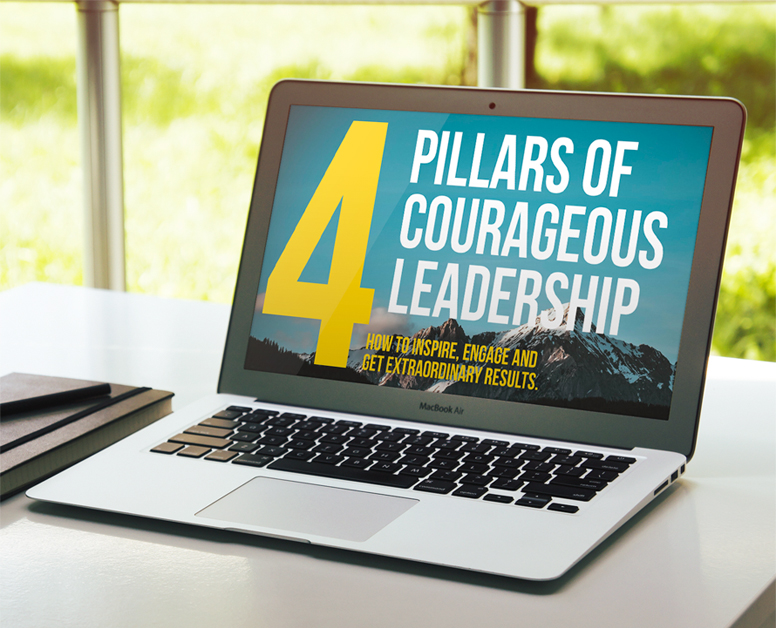 A Summary of The Courage of a Leader® 4 Pillars
A Summary of The Courage of a Leader® 4 Pillars